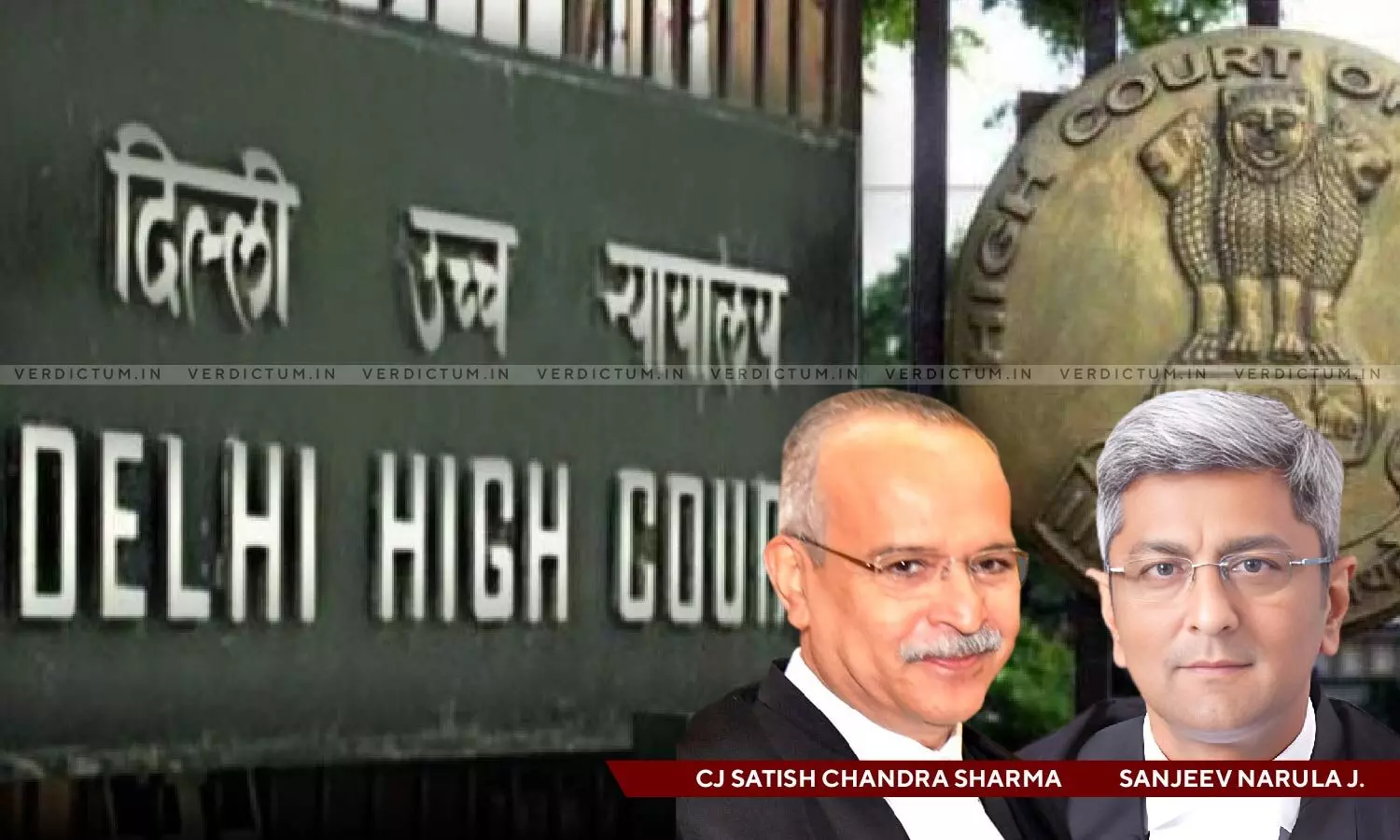
Can Contribute To Overall Betterment Of Society & Protect Public Health: Delhi HC Directs Centre To Continue To Combat Substance Abuse
 |
|The Delhi High Court disposed of a Public Interest Litigation seeking directions for the regulation/management of drugs and de-addiction centres in the State. The Court held that the measures adopted by the Government have demonstrated awareness and a proactive approach to address the issue of substance abuse.
A Division Bench of Chief Justice Satish Chandra Sharma and Justice Sanjeev Narula observed, “Nonetheless, we must add that it is crucial that the Government continue its efforts and remain steadfast in the endeavour to combat substance abuse, as it requires sustained attention and a multifaceted approach. By doing so, the Government can contribute to the overall betterment of society and protect public health."
Advocate Maninder Acharya appeared as Amicus Curiae and Special Prosecution Counsel Srivats Kaushal appeared for the Respondents/Union of India.
The Court observed that the “Manual on Minimum Standards of Services” which was developed by the Ministry of Social Justice & Empowerment (MoSJE) has been misused by the unregistered centres. The Court also noted that many unregistered centres have mushroomed across the nation due to the lack of any regulatory supervision and monitoring.
“In respect of quality assurance, the “Manual on Minimum Standards of Services” has been developed by MoSJE, but is misused by unregistered centres to showcase existence of professional systems within their centre. Government of India has failed to appoint a dedicated regulatory/ monitoring agency for drug and alcohol rehabilitation/ de-addiction centres. There are 300 de-addiction centres being run in Government hospitals/ primary health centres, etc. and tens of hundreds of such centres have mushroomed across the country in absence of regulatory supervision and monitoring”, the Court noted,
Advocate Acharya submitted a report highlighting the flaws in the approach towards rehabilitation of drug and alcohol addicts i.e., coercive measures adopted by rehabilitation centres, stigmas associated with addiction which reduce the chances of individuals seeking treatment, etc. The report relied on various sources including AIIMS (New Delhi), Columbia University (USA) and the United Nations.
The Union of India also submitted an affidavit outlining the measures taken by the government. The affidavit listed all programs being run by the government including financial assistance to state governments and union territories, a toll-free helpline number and offering primary counselling and referral services. The MoSJE also initiated a program “Nasha Mukt Bharat Abhiyaan”, wherein the government identified the most vulnerable districts to focus on improving treatment in hospitals and rehabilitation centres, capacity-building programmes for service providers, generating awareness amongst school and college students, and identifying dependents in the population.
The Bench asserted, “The report identifies that although government run de-addiction centres are regulated by standards prepared by AIIMS1 and NGO-run government funded de-addiction centres are regulated by the “Manual on Minimum Standards of Services” 2 prepared by MoSJE, however, private rehabilitation/ de-addiction centres remain largely unregulated. In conclusion, the report stresses on the need for urgent implementation of the 2012 National Policy apart from various long term measures and short term measures”.
Additionally, the Court noted that most of the reliefs sought in the PIl have been dealt with and therefore, the Court disposed of the case.
Cause Title: Rajiv Boolchand Jain v. Union of India And Ors (2023:DHC:4995:DB)